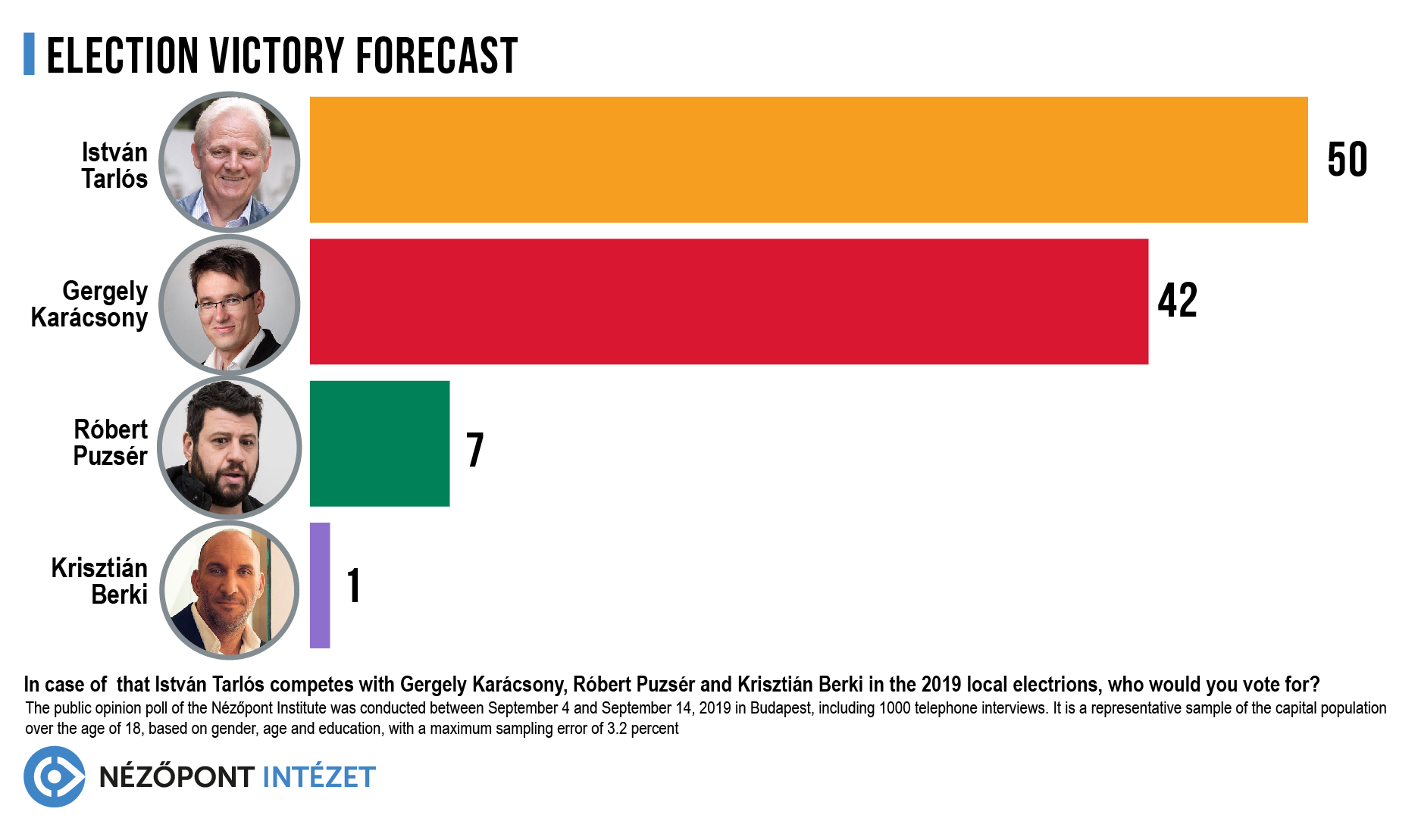István Tarlós would collect half of votes (50 percent) even on his own, meaning that his significant lead in the competition for the title of Mayor of Budapest has prevailed according to the latest, Budapest, poll of Nézőpont Institute.
His challengers’ campaigns have not been successful: movements detected since the previous research are within the error margin. Gergely Karácsony (42 percent) failed to gather strength; Róbert Puzsér gained one percent (7 percent) and Krisztián Berki has managed to reach 1 percent. Other indicators also confirm the absence of a mayor-changing mood.
One month before the local election, István Tarlós continues to maintain his lead in the mayoral race in Budapest. The incumbent mayor would collect half of all votes himself; as it stands now, he could actually exceed his 2014 result of 49 percent. Among decided voters, the results of Gergely Karácsony did not change (42 percent); presumably, only his core voters were concerned by his previous campaign week driven by expressing sympathy with András Pikó in public. Róbert Puzsér, on the other hand, who conducted an active campaign, strengthened within the error limit. His messages rejecting both the Left and the Right have already brought him 7 percent.
Satisfaction with the work of the incumbent mayor by the majority (51 percent) of Budapest residents has contributed significantly to István Tarlós’s lead. Supporters of Fidesz fully back the politician who has led Budapest for 9 years (90 percent is satisfied), but almost one quarter of members of the left-wing opposition (22 percent) is also satisfied with the work of István Tarlós. The high satisfaction rate is also indicative of the absence of a mayor-changing mood in Budapest. All this aggravates Gergely Karácsony’s campaign built on anti-government sentiments.
Methodology
The public opinion poll of the Nézőpont Institute was conducted between September 4 and September 14, 2019 in Budapest, including 1000 telephone interviews. It is a representative sample of the capital population over the age of 18, based on gender, age and education, with a maximum sampling error of 3.2 percent.
